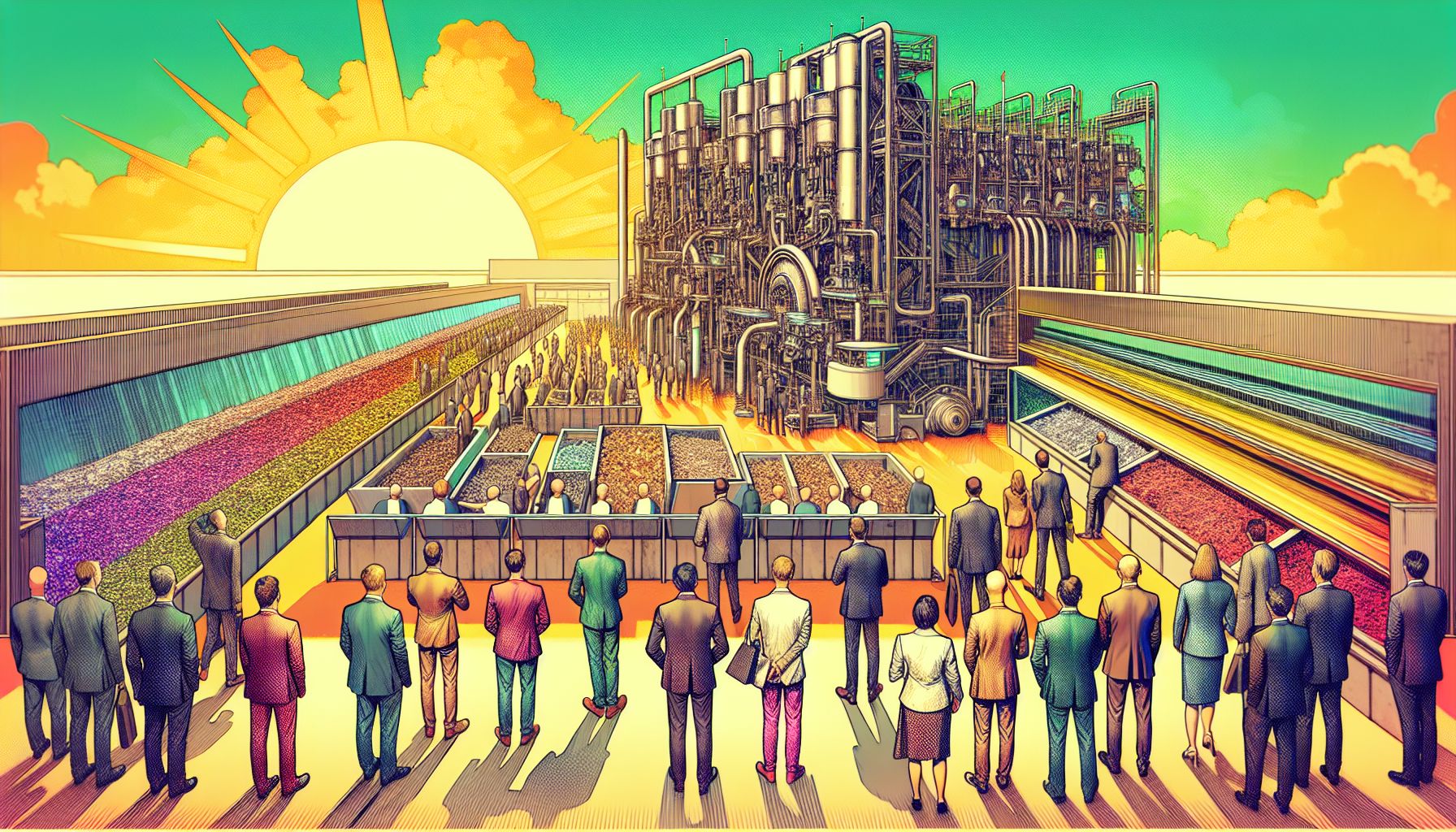AI Revolution Hits Recycling: Dutch Trade Fair Showcases Future of Waste Management

Rotterdam, Monday, 2 December 2024.
In a groundbreaking convergence of technology and sustainability, the Netherlands’ Recycling 2024 trade fair will spotlight AI-driven waste sorting solutions this November. As global giants like Unilever commit to ambitious recycling targets and the waste management market projects $223.8 billion growth by 2028, this event signals a transformative shift in how we handle waste. The three-day exhibition in Gorinchem demonstrates how artificial intelligence is revolutionizing the circular economy, promising to make recycling more efficient and profitable than ever before.
Innovations on Display: The Role of AI in Recycling
At the heart of the Recycling 2024 trade fair in Gorinchem, the spotlight is on AI-driven waste sorting technologies that promise to redefine the landscape of waste management. Companies like SSI Shredding Systems and Bianna Recycling are leading the charge with their robust industrial shredders and advanced recycling equipment. These innovations are not just about increasing efficiency; they represent a paradigm shift in waste management processes, potentially reducing the industry’s carbon footprint significantly while improving resource recovery rates[1].
The Power of Collaboration and Networking
The trade fair serves as a crucial platform for collaboration among various stakeholders in the recycling industry. With a diverse array of participants from recycling companies to waste producers, the event fosters an environment ripe for exchanging ideas and forging new partnerships. This collaborative atmosphere is essential for pushing forward the agenda of a circular economy, where waste is minimized, and materials are kept in use for as long as possible[1].
Global Commitments and Local Actions
Globally, companies like Unilever have made significant strides towards sustainability by integrating circular economy principles into their operations. Unilever has reduced its use of virgin plastic by 18% since 2019 and aims for 100% of its plastic packaging to be reusable, recyclable, or compostable by 2030. This ambitious target underscores the growing commitment from industry leaders to tackle the global plastics challenge[2]. At the same time, the trade fair in the Netherlands offers a glimpse into the practical applications of these commitments, showcasing technologies that could be pivotal in achieving such targets.
The Future of Waste Management: A $223.8 Billion Opportunity
The global waste management market is poised for significant growth, with projections indicating an increase of $223.8 billion from 2024 to 2028, driven by European recycling laws and advancements in AI. The integration of AI technologies, such as smart waste bins and recycling robots, is set to revolutionize waste processing, making it more efficient and aligned with circular economy goals. As these technologies become more widespread, they offer a sustainable path forward, addressing both environmental sustainability and public health concerns[3].
Conclusion: A New Era for Recycling
The Recycling 2024 trade fair in Gorinchem marks a pivotal moment in the journey towards a circular economy. By highlighting cutting-edge AI technologies and fostering collaboration, the event underscores the potential for innovative solutions to transform waste management. As global giants and local innovators converge on this platform, the future of recycling looks promising, with AI at the forefront of this sustainable revolution.

